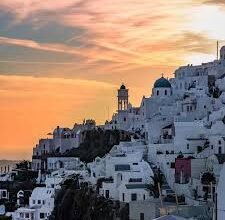Kotora Melnkalne: Unveiling the Mystery

The phrase Kotora Melnkalne carries an air of intrigue, evoking curiosity about its origins and significance. Whether it refers to a person, a mythical place, or an abstract idea, its enigmatic nature invites deeper exploration. In this article, we’ll delve into possible interpretations, cultural connections, and the allure of the unknown that surrounds Kotora Melnkalne.
1. The Linguistic Roots of Kotora Melnkalne
Language often holds the key to unraveling mysteries. Breaking down “Kotora Melnkalne,” we find possible connections to Baltic or Slavic languages. “Melnkalne” resembles Latvian or Lithuanian, where “melns” means “black” and “kalne” could derive from “kalns” (mountain), suggesting “Black Mountain.” Meanwhile, “Kotora” might relate to “kot” (cat in some Slavic languages) or a variation of a name. Could this phrase signify a legendary place, a forgotten folklore figure, or something entirely different? The linguistic puzzle deepens the fascination.
2. Myth and Folklore: Is Kotora Melnkalne a Legend?
Many cultures have tales of mysterious figures or hidden lands. If Kotora Melnkalne is rooted in mythology, it might parallel stories like the Baba Yaga of Slavic lore or the Black Mountain trope found in European legends. Perhaps it symbolizes a journey—a hero’s trial or a forbidden realm. Alternatively, if it’s a name, could Kotora Melnkalne be a guardian spirit, a trickster, or a forgotten deity? Folklore often blurs the line between reality and imagination, leaving room for endless interpretation.
3. The Symbolism of Darkness and Elevation

The possible translation of “Black Mountain” opens symbolic doors. Mountains represent challenges, enlightenment, or isolation, while black signifies mystery, the unknown, or even danger. Together, they could depict a spiritual ascent through darkness—a theme found in shamanic traditions and gothic literature. Is Kotora Melnkalne a metaphor for life’s struggles, or does it describe a physical place shrouded in secrecy? The duality of its meaning invites personal reflection.
4. Modern Interpretations and Cultural Influence
In today’s world, obscure phrases like Kotora Melnkalne often inspire art, music, or literature. Could it be the title of a novel, an indie band, or an avant-garde film? Artists frequently borrow from archaic or invented terms to evoke a sense of timelessness. Alternatively, internet culture might have given it new life as a meme or cryptic reference. The beauty of such phrases lies in their adaptability—they become what we make of them.
5. The Search for Kotora Melnkalne: Real or Imagined?
If we treat Kotora Melnkalne as a real location, could it be a remote village, a hill in Eastern Europe, or a lost archaeological site? Historians and travelers often uncover places once thought to be myths. Conversely, if it’s purely fictional, why does it captivate us? Humans are drawn to puzzles, and Kotora Melnkalne serves as a blank canvas for our imagination, much like El Dorado or Atlantis.
Conclusion: The Enduring Enigma
Kotora Melnkalne remains a riddle—an invitation to explore language, myth, and meaning. Whether it’s a whisper from the past or a modern creation, its power lies in its ambiguity. Some mysteries resist resolution, and perhaps that’s their magic. What does Kotora Melnkalne mean to you?



